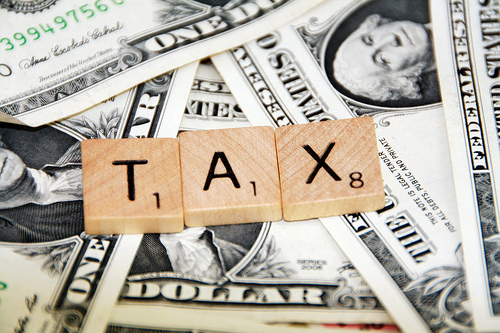AARP Hearing Center

Voters have a historic opportunity this fall to help fix the state’s long-standing budget crisis by replacing its current flat income tax with a graduated one—a proposal that AARP Illinois supports.
According to Gov. J.B. Pritzker (D), only the wealthiest 3 percent of residents would pay more under a graduated income tax, and 97 percent would pay the same or less than they do now.
The General Assembly passed a measure last May to enact the graduated tax, if voters approve a constitutional amendment on Nov. 3. Pritzker said the switch to a “fair tax” could help reduce the Prairie State’s $3.2 billion budget gap.
Getting information out in support of the graduated tax is a top priority for AARP Illinois.
It’s a hard sell, however, in a state blighted by past corruption. Three of the state’s previous seven governors have gone to prison.
“There is a prevailing mistrust in government based on the experiences of the last several decades,” said Ryan Gruenenfelder, AARP advocacy and outreach director for Southern Illinois.
Opponents call the measure a $3.2 billion tax hike. They argue that the state’s chronic budget ills are due to overspending, rather than a lack of revenue.
Senate Republican Leader Bill Brady (R-Bloomington) said: “We have proven over the past few years how easy it’s been to raise taxes in Illinois. A graduated income tax will make it even easier and, in fact, open the door for future tax increases.”
Arguments in favor
Proponents of the change say a graduated income tax would ease the burden on low- and middle-income families and help repair the state’s budget crisis.
From the summer of 2015 to the summer of 2017, Illinois was without a budget, which resulted in cuts to many services, from fire and police protection in rural communities to support for families with children.
Along with the multibillion-dollar budget deficit, the state’s public-pension system is underfunded by at least $137 billion.
“We see the graduated income tax as a step in the right direction for Illinois that protects its residents,” Gruenenfelder said.
Illinois’ income tax rate is 4.95 percent today, regardless of earnings. The graduated tax would start at 4.75 percent for the first $10,000 of income, then climb to 4.9 percent on annual income of $10,001 to $100,000 and to 4.95 percent for $100,001 to $250,000.
The tax rate for single filers would rise to 7.75 percent for income of $250,001 to $350,000, 7.85 percent for $350,001 to $750,000 and 7.99 percent for all income above $750,000.
Illinois does not tax retirement, pension or Social Security income. So how would the proposed change affect retirees?
“The fair tax will help all Illinoisans, including retirees, by making the state work better for everyone,” said Quentin Fulks, executive director of Vote Yes for Fairness, a nonprofit that’s in favor of the graduated income tax.
“Without the additional revenue, Illinois could have to cut social services and take other drastic measures,” Fulks pointed out. “Retirees deserve to retire and live with dignity.”
To estimate how the graduated income tax would affect your household, visit illinois.gov/fairtaxcalculator. To learn more, go to aarp.org/il or voteyesforfairness.com.
Lisa Bertagnoli is a writer living in Chicago.
More on Illinois
Paid for by Yes to a Financially Responsible Illinois.































































